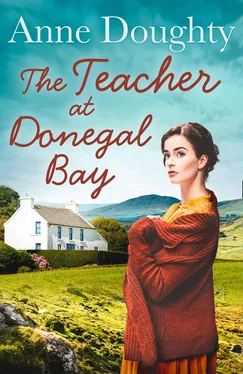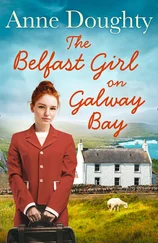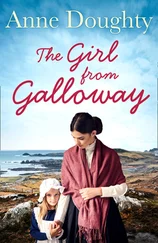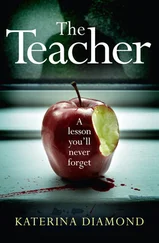‘Come on, George, get going. Tell yourself it’s downhill.’
He made his way back along the hall and into the dining room. To his surprise the pain began to ease.
‘Great stuff,’ he said triumphantly. ‘Let’s get this fire made up while the going’s good. Shure, what does it matter if I have to sit here the whole afternoon, so long as I’m all right for Jenny coming.’
Gladys would laugh if she could hear him. His secretary for twenty years and his friend and confidante for most of them, she’d told him only last week that he mustn’t talk to himself or people would get the wrong idea.
‘An’ d’ye not talk to yourself, Gladys?’ he asked her teasingly.
‘’Deed I do,’ she replied promptly. ‘But I make sure no one’s listening.’
He made up the fire and sat down gratefully. The pain had eased a lot but it had left him feeling weak. Or maybe that was the tablets. Whatever it was, he’d have to behave himself today. Rest, the doctor said. Rest. There hadn’t been a lot of rest in his life and it didn’t come easy to him now. But he could read. Wasn’t he lucky he had good eyesight and enough books to thatch houses with, as the saying was.
He picked up a small leather-covered volume from his side table. A spot of Goldsmith in the dying months of the year. Sweet Auburn , perhaps. A link with times long past when the world was simpler, if not better. He opened it and looked at the familiar handwriting inside the cover. ‘To Daddy with love, because your old copy is falling apart. Happy Birthday, Jenny.’
‘Daddy, can we go up to Granny’s house before we go home?’
He looked down at the small hand clutching his arm and the earnest regard in the dark eyes. ‘It’s a bit of a walk for you, love, and it’ll be wet after the rain.’
‘But I have my boots, Daddy. Granny McTaggart says I could go anywhere in my seven league boots.’
Mary McTaggart laughed and took the brown teapot from the stove. ‘Have anither drap o’ tea, George. I think ye may go, for she’s talked ‘bout nothin’ else all week. She’s had Lottie gae up there three or four times a’ready. She’d ’ave gone hersel’ if I’d let her.’
He looked at his watch. Edna would be expecting her back for bedtime at seven and the Austin was not exactly the world’s fastest car.
‘Please Daddy. I’ve had such a lovely holiday with Granny McTaggart and she’s told me all about you when you were a little boy.’
‘Oh dear,’ laughed George, looking up at the old woman who had always been so kind to him. ‘Has she told you all my secrets?’
‘Yes,’ said the child promptly. ‘But I can keep a secret, can’t I, Granny?’
‘Oh, ye can do mony a thing, my little lady. I hope yer auld granny is still here in ten years time to see ye.’
‘When I’m sixteen and all grown up?’ she said, as she fetched a small pair of Wellingtons from a corner of the big kitchen where those of Mary’s youngest son and his family were lined up against the wall.
The rain had cleared and the late August sun was warm on their faces as they avoided the puddles in the farmyard, George stepping carefully in the brown leather shoes he wore in town. Five months now since the move. A hard time it had been. Worries about the loan on the showroom, the tractors and trailers he had ordered from England, the cost of the glossy catalogues he’d distributed with reapers and binders and combines too big and too costly to stock. The mortgage on the house in Stranmillis, the only one Edna had liked, was far more than he had planned and the work it needed took up every hour when he was not at the showroom. But it had been his own choice. For the first time in his life he was his own boss. You couldn’t have that and peace of mind as well.
In this last month things had begun to move. The war years had been profitable for farmers with every bite of food sure of its market and a good price guaranteed, and the three years since had been good too, though labour had to be a problem with wages so low. The farmers were beginning to spend what they had accumulated, confident now that the old hard times were past. First they bought a motor car for themselves, then they put in a bathroom for the family and then they looked at their old-fashioned and worn-out farm machinery. Having a tractor was the first step. He’d be sad himself to see the plough horses go, but the change had begun during the war on the big farms and now he was sure the smaller farmers were beginning to follow on. A tractor could do the work of a couple of men.
Well, it would take a lot of tractors to put Harvey through his seven years. He’d set his heart on being a doctor and the sixth form master at the new school said he had every chance of passing his exams. That had really pleased Edna. In fact, since the move from Ballymena, things had been easier there. She had joined the Church ladies and went out more. Sometimes on a Saturday when he was decorating or fitting up shelves she would bring him a mug of tea. At times she seemed almost content.
‘Did you always come this way when you went to school?’
George glanced down at the small figure skipping along at his side. She never walked unless she was thinking about something and then you would see her move one foot at a time, with a dogged deliberation, her brow deeply furrowed. On her first day at her new primary school down the road she had walked solemnly off with her mother and then come skipping home with a friend. That was typical of Jenny. The surprise in his life, the daughter he never expected, closer to him from her earliest years than the son of whom he had had such hopes.
‘No, usually I went down beside the stream till I got to the road. I only came this way to see Granny McTaggart.’
‘Didn’t you get your shoes wet going down by the stream?’
‘I didn’t wear shoes.’
‘But you can’t wear Wellies for going to school,’ she protested. ‘Did you take your shoes in a shoe bag?’
‘I didn’t have any shoes or Wellies. Lots of children didn’t in those days.’ He looked down again and saw the familiar furrow as she considered this piece of information. She was walking now with her eyes focused on the toes of her boots and the rough surface of the almost overgrown path.
‘Didn’t the stones hurt when you tramped on them?’
‘Sometimes, but your feet got hard and you didn’t notice, mostly.’
At that moment they reached the first of the two streams that crossed their path.
‘How did the stream know where to go under the ground?’
‘It didn’t. It just felt around and wherever it found a hole or a crack, in it went.’
‘Do you think it likes being under there?’
George smiled to himself. She could go on like this for hours. And he would be happy to let her for the workings of her mind never ceased to intrigue him. But it made Edna angry. Always asking questions, and such silly nonsense too. She blamed him for encouraging her.
‘Look, Jenny, you can see Scotland now.’
‘Where?’
He saw her bend down and peer out to sea between two gorse bushes. He laughed at himself, picked her up and felt the soft touch of one arm as she wound it round his neck. She waved the other towards the sea, greeny-blue and flecked with white caps after the passing shower.
‘Is that Scotland?’
‘Yes, love. That’s the Mull of Kintyre.’
‘Mull of Kintyre,’ she repeated solemnly as if she were learning it by heart.
He stood and pointed out the landmarks of his childhood world, and then, still carrying her, strode up and across the stepping stones to the abandoned house where the thatch had fallen in at one end and been overwhelmed by a tangle of roses, a few of which were still in bloom.
Читать дальше












